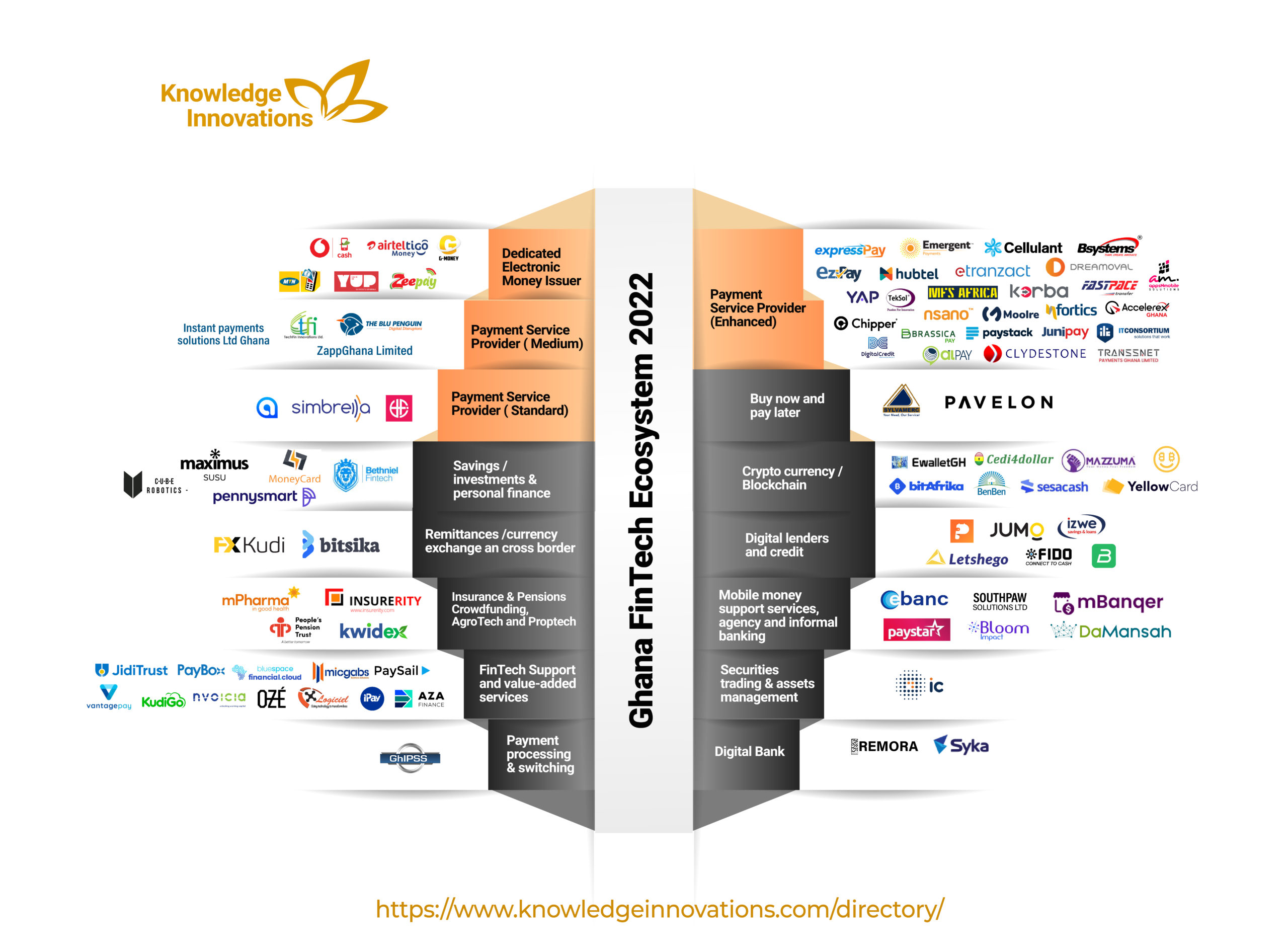With a projected global Fintech market value estimated at $16.65 Trillion over 2022 – 2028[1], the Fintech sector is an exciting area with a lot of potential for emerging economies, including Ghana. Furthermore, it promises to ensure greater participation in the formal financial system; the World Bank[2] estimates only 40.5 percent of adults in Ghana have an account at a traditional financial institution.Ghana is a leader in digital transformation in many areas of its fledgling economy, with the digitalization of its financial system as a critical objective driven by a number of policy initiatives such as The National Financial Inclusion and Development Strategy, Cash-Lite Roadmap, and Digital Financial Services Policy, making Ghana the first country in the world to launch this policy all directed at achieving cash lite society. One of the key anchors of Ghana’s drive to accelerate digital payment mainstreaming is the Financial Technology (Fintech) ecosystem, which is experiencing tremendous growth with an exciting outlook.
The Fintech sector is now contributing significantly to the growth and development of the economy; however, there is currently somewhat limited literature on Ghana’s FinTech ecosystem. This report is the first in Ghana to map out the key actors operating in this space comprehensively. For this report, we define FinTech as an evolving industry that offers technology services and support to the financial sector, provides digital mediated financial services, and offers a new pathway of enabling financial excluded to participate in formal financial services. Ghana’s FinTech sector is categorized into licensed and unlicensed actors who rely on third-party licenses to facilitate their operations. Due to the dominance of payments in the industry, the principal regulator is the Bank of Ghana, which currently licensed FinTech under five main categories, namely Dedicated Electronic Money Issuer, Payment Service Provider (Enhanced), Payment Service Provider (Scheme), Payment Service Provider (medium), and Payment Service Provider (standard). Other regulators are Data Protection Commission, National Information Technology Agency, Security and Exchange Commission, Pension Authority, National Insurance Commission, which recently launched Innolab Accelerator Programme to spur innovations in Ghana’s insurance sector.
This report was generated based on an analysis of relevant data sources, census, and survey with key stakeholders in the Ghana FinTech ecosystem. This map is essential for several reasons, including maintaining a dynamic picture of Ghana’s FinTech landscape to provide insights for policymakers, regulators, FinTech firms, investors, accelerators, and ecosystem enablers. The listing of companies used in this map can be found at https://www.knowledgeinnovations.com/directory/
Key highlights
1. We estimated the number of FinTech companies in Ghana to be over 100 based on our census.
2. Interest and investment in Ghana’s Fintech are growing fast, with the digital payments sub-sector near maturity stage with mobile money leading the pack.
3. Untapped opportunities remain in critical areas such as insurance, pensions, blockchain, security trading and assets management, agriculture, crowdfunding, peer-to-peer lending, buy now and pay later, and property.
4. FinTech will put Ghana on the international financial map reversing the trend where Ghana banks’ presence on the global market remains sparse.
5. New FinTech firms are expected to emerge and flourish, with the ability to churn innovations serving as a critical differentiator.
The FinTech sector requires the attention of all captains of business, irrespective of what business sector you operate; Fintech is now at the centre of your revenue generation efforts due to its role as an indispensable enabler plus a lot of unparalleled opportunities it offers.
In conclusion, Ghana’s Fintech investment, market growth, and expansion outlook remain optimistic due to the enabling environment, predictable regulatory framework, and critical foundational system, including reliable digital payments infrastructure. FinTech ecosystem as a lifeline to Ghana’s economy will grow in influence each passing day, thereby ensuring the country’s full participation in the fast-evolving digital economy.
The writer is a Technology Innovations Consultant
First published in 22 Tuesday, March 2022 Graphic Business
[1] https://dazeinfo.com/2022/02/04/global-fintech-market-2022-2028-16-65-trillion-opportunity-for-startups/


